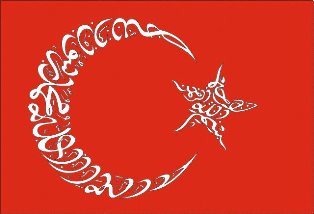AUSTRALİA TWO
AUSTRALİA SYDNEY ENGLISH MUSLIM GROUPİSLAMGREEN34 ENGLİSH
AVUSTRALİA SYDNEY MUSLIM GROUP
Mr - Wesley Zachary Oswaldjohn
Mrs - Barbara Rosemary Lessiescarlett
Mr - Domınıc Jack Samueltexneil
Mr - Alfred Mc Radison Columbus
General Coordination Mr - Wesley Zachary Oswaldjohn
New South Wales West Avenue 18/2
Saint Leonards Park Str 68-3
Marc Luxury Apt 12-a Post - Code 2000 SYDNEY
Islamic republic
| Part of the Politics series |
| Islamism |
|---|
| Basic Topics |
| Movements |
| Manifestations |
| Concepts |
| Key texts |
| Politics portal |
| Part of the Politics series |
| Basic forms of government |
|---|
| Power structure |
| Power source |
| Politics portal |
Islamic republic is the name given to several states in the Muslim world including the Islamic Republics of Pakistan, Iran, Afghanistan, and Mauritania. Pakistan first adopted the title under the constitution of 1956. Mauritania adopted it on 28 November 1958. Iran adopted it after the 1979 Iranian Revolution that overthrew the Pahlavi dynasty. Afghanistan adopted it after the 2001 overthrow of the Taliban. Despite the similar name the countries differ greatly in their governments and laws.
The term Islamic republic has come to mean several different things, some contradictory to others. To some Muslim religious leaders in the Middle East and Africa who advocate it, an Islamic Republic is a state under a particular Islamic form of government. They see it as a compromise between a purely Islamic Caliphate, and secular nationalism and republicanism. In their conception of the Islamic republic, the penal code of the state is required to be compatible with some or all laws of Sharia, and the state may not be a monarchy as many Middle Eastern states are presently.
In the cases of Pakistan and Mauritania, it is merely a symbol of Muslim cultural identity. In fact many argue that an Islamic Republic strikes a middle path between a completely secular and a theocratic (and/or Orthodox Islamic) system of government.
Contents[hide] |
Iran [edit]
Iran's Islamic republic is in contrast to the semi-secular state of the Islamic Republic of Pakistan, where Islamic laws are technically considered to override laws of the state, though in reality their relative hierarchy is ambiguous.
The Islamic Republic of Iran came into existence following the Iranian Revolution and a national referendum held on 1 April 1979.
China [edit]
The Turkic Uyghur and Kirghiz controlled Turkish Islamic Republic of East Turkestan was declared in 1933 as an independent Islamic Republic, by Sabit Damulla Abdulbaki and Muhammad Amin Bughra. However, the Chinese Muslim 36th Division (National Revolutionary Army) defeated the Turkic Muslim Uyghur and Kirghiz armies of the Turkish Islamic Republic, and destroyed the Republic during the Battle of Kashgar (1934), Battle of Yangi Hissar and Battle of Yarkand.[1] The Chinese Muslim Generals Ma Fuyuan and Ma Zhancang declared the destruction of the rebel forces and the returning of the area to the control of the Republic of China government, Chinese Muslim forces then executed the Turkic Muslim Emirs Abdullah Bughra and Nur Ahmad Jan Bughra. The Chinese Muslim General Ma Zhongying then entered Idgah Mosque in Kashgar, and lectured the Turkic Muslims on being loyal to the Chinese government.
Pakistan [edit]
Pakistan was the first country to adopt the adjective "Islamic" to modify its republican status under its otherwise secular constitution. Despite this definition the country did not have a state religion until 1973, when a new constitution, more democratic and less secular, was adopted. Pakistan only uses the "Islamic" name on its passports and visas. Although Islamic Republic is specifically mentioned in the Constitution of 1973, all government documents are prepared under the name of the Government of Pakistan. The Constitution of Pakistan, part IX, article 227 says "All existing laws shall be brought in conformity with the Injunctions of Islam as laid down in the Quran and Sunnah, in this Part referred to as the Injunctions of Islam, and no law shall be enacted which is repugnant to such Injunctions".[2]
See also [edit]
References [edit]
- ^ Chahryar Adle, Madhavan K. Palat, Anara Tabyshalieva (2005). History of Civilizations of Central Asia: Towards the contemporary period : from the mid-nineteenth to the end of the twentieth century. UNESCO. p. 395. ISBN 92-3-103985-7. Retrieved 28 October 2010.
- ^ Constitution of Pakistan, Part IX, Article 227
- Ankerl, Guy (2000). Global communication without universal civilization. INU societal research. Vol.1: Coexisting contemporary civilizations : Arabo-Muslim, Bharati, Chinese, and Western. Geneva: INU Press. ISBN 2-88155-004-5.
External links [edit]
- Islam and Politics from the Dean Peter Krogh Foreign Affairs Digital Archives
- Islamic Republic of Iran Constitution, general principles
|
|||||
İSLAMGREEN34 ENGLİSH
AVUSTRALİA SYDNEY MUSLIM GROUP
Mr - Wesley Zachary Oswaldjohn
Mrs - Barbara Rosemary Lessiescarlett
Mr - Domınıc Jack Samueltexneil
Mr - Alfred Mc Radison Columbus
General Coordination Mr - Wesley Zachary Oswaldjohn
New South Wales West Avenue 18/2
Saint Leonards Park Str 68-3
Marc Luxury Apt 12-a Post - Code 2000 SYDNEY
.




